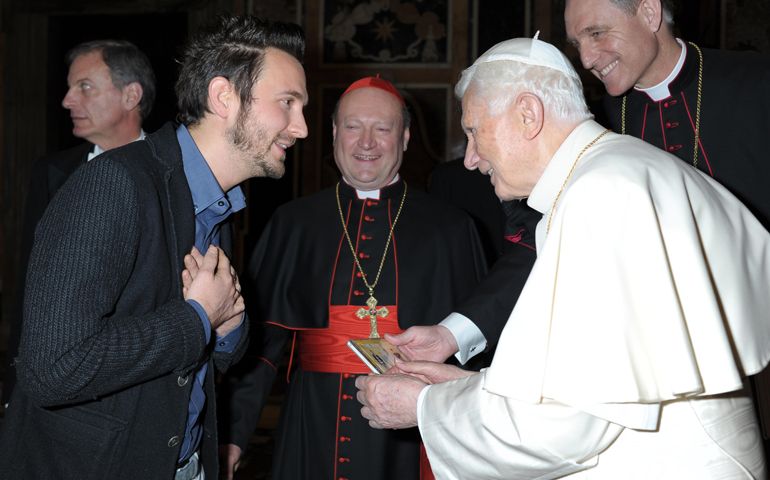Vatican City — Young people's essential needs, including decent work and an education, demand a serious, effective response from both the church and the wider community, Pope Benedict XVI said.
Problems facing young people "cannot be met with responses that are evasive or banal," he said, especially if humanity is going to have a hopeful, generous future.
The pope made his remarks Thursday during an audience with members and advisers of the Pontifical Council for Culture. The council was hosting a plenary meeting at the Vatican Feb. 6-9 on "Emerging Youth Cultures."
The majority of people under the age of 25 live in developing nations, and the pope said these young people represent "a challenge to the world of globalized consumerism and the culture of entrenched privileges of which a small segment of the population of the western world benefit."
"Consequently, youth cultures are also 'emerging' " in the sense that they are showing signs of important unmet needs that should be addressed, he said.
Today's young people are showing in many different ways "a deep need, a call for help or even a 'provocation' that cannot be ignored or left out either by civil society or the church community," he said.
The pope highlighted his and the church's concern about the crisis in education and the labor market as well as "other 'emergencies' that touch on the different dimensions of the human person and his fundamental relationships."
If these issues aren't dealt with adequately, the world and all of humanity will experience not only "economic and social impoverishment, but a human and spiritual one as well," he said.
"If the young no longer hope or progress, if they don't put their energy, their vitality and their ability to look toward the future into the flow of history, then we will find a humanity that is locked in itself, lacking both confidence and a positive attitude toward the future."
The pope said despite "the many problematic situations" affecting young people, their faith in God and their sense of belonging to the church, "we wish to renew our faith in the young and reaffirm that the church sees their condition and their cultures as an essential and inescapable point of reference for pastoral outreach."
The church believes in the young, their energy and generosity, the pope said, adding that the church "needs their vitality in order to continue living the mission entrusted to her by Christ with renewed enthusiasm."
Advertisement
U.S. Cardinals Francis George of Chicago and Daniel DiNardo of Galveston-Houston, both members of the culture council, attended the plenary and told Catholic News Service on Thursday how their archdioceses are reaching out to young people.
DiNardo said many parishes have large and active youth ministries that are dedicated to the most vulnerable of their peers: those who are marginalized, undocumented immigrants and unemployed. "That's where we find our toughest work is, in outreach" to those groups, he said.
Another challenge, he said, is helping technologically savvy young people, who are very good at communicating their faith to others, learn to turn church teachings into principles that actually mold and guide their lives.
"You've got to give them a sense of internalizing their faith, which is always the work of an evangelizer, and it's evangelizing not just youth but ourselves as well," DiNardo said.
George said in some ways the young and very old are facing many of the same problems, specifically a sense of being isolated from the wider culture and despair.
However, "we shouldn't treat young people as if they were a different species," he said, because they have the same needs as all human beings -- to be loved, to love in return, and to help and be of service to others.
Young people aren't the only ones no longer or seldom going to Mass, he said; many adult Catholics are absent from the pews, too.
In fact, other faith and church communities are no longer attracting their own or new followers either, in part, because people are living increasingly busy lives, he said.
"There are a lot of distractions, so the time necessary that has to be given to belonging to something authentically isn't available," George said.
"Belonging in general is in crisis whether you're talking about belonging to a church or some other organization," he said.
So while making people feel welcome when they come to church is key, "they have to show up in order to be welcomed, and if you're not in touch with them, how do you even invite them," he said.
He said the challenge remains one of communication and effective outreach, as well as hoping people will then carve out a bit of time for God and church.
Advertisement



